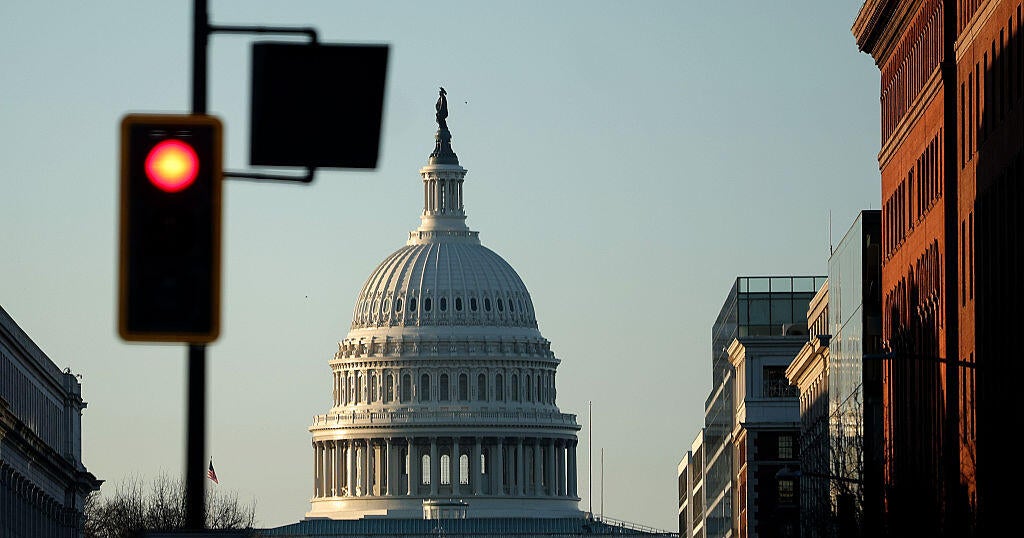Sen. Cory Gardner: U.S. Land Management agency moving out west
Some Westerners have long complained the U.S. government is an absentee landlord, managing vast tracts of public lands in their states from the nation's capital instead of closer to the properties themselves.
GOP lawmakers say that may change soon.
The Bureau of Land Management has decided to move its headquarters from Washington to western Colorado, Sen. Cory Gardner, a Colorado Republican, said Monday.
He said the new headquarters would be in Grand Junction, a conservative city of about 63,000 people 250 miles (400 kilometers) west of Denver.
"The problem with Washington is too many policy makers are far removed from the people they are there to serve," Gardner said in a news release. "This is a victory for local communities, advocates for public lands and proponents for a more responsible and accountable federal government."
A Bureau of Land Management spokeswoman who declined to give her name said she couldn't confirm or deny the move. An announcement about the agency's plans was expected Tuesday.
The number of bureau jobs moving West appeared to be relatively small.
A spokesman for Utah Republican Rep. Rob Bishop said Colorado, Nevada and Utah could each gain 50 jobs as part of the reshuffling, and another 150 bureau jobs could be moved to other Western states.
The spokesman, Austin Hacker, said it was not yet certain whether all 300 relocated positions would come from Washington — where the bureau has only about 400 workers — or if any would move from other parts of the country.
It would be a symbolic victory, at least, and would put in place one high-profile component of the Trump administration's plan to reorganize the way the government manages the nation's natural resources.
Bishop said public lands decisions would be made in the West, "not by bureaucrats from thousands of miles away."
The bureau, part of the Interior Department, oversees nearly 388,000 square miles of public land, and 99% is in 12 Western states. The lands are rich in oil, gas, coal and grazing for livestock, as well as habitat for wildlife, hunting ranges, fishing streams and hiking trails.
The bureau is in the vanguard of President Donald Trump's campaign to step up fossil fuel production on public land, and it has often been in the crosshairs of Democrats and conservationists who say the administration is more interested in mining and drilling than in protecting the environment.
Rep. Raul M. Grijalva, D-Arizona, chairman of the House Natural Resources Committee, attacked the headquarters move and noted that Grand Junction is not far from Interior Secretary David Bernhardt's hometown of Rifle, Colorado.
"Putting BLM headquarters down the road from Secretary Bernhardt's hometown just makes it easier for special interests to walk in the door demanding favors without congressional oversight or accountability," Grijalva said. "The BLM officials based in Washington are here to work directly with Congress and their federal colleagues, and that function is going to take a permanent hit if this move goes forward."
The bureau has 9,000 employees, most of them scattered among 140 state, district or field offices.
Grijalva said he suspects the bureau's true motive is to force out some employees who would not be willing to move. The Interior Department has previously denied that was a reason.
Key details of the move were unknown, including how much it would cost, how many employees would remain in Washington and, most importantly, whether the move would have a significant impact on land management decisions or would be more a token of the administration's plan to decentralize the bureau.
Colorado Gov. Jared Polis, a Democrat, welcomed the change but reminded the Trump administration that he and other Democrats want the president to do more to protect the environment and recreational access on public lands.
"Hard to think of a better place to house the department responsible for overseeing our beloved public lands," he said in a written statement.
Interior Department officials have said they also considered Denver; Salt Lake City; Albuquerque, New Mexico; and Boise, Idaho, for the new headquarters.
Former Interior Secretary Ryan Zinke initiated the plan to reorganize his department. Zinke stepped down in January amid ethics allegations, and Bernhardt has continued the planning but with less fanfare.



